-
 +19 +1
+19 +1Amazon installs 'creepy' AI cameras to monitor more delivery drivers, report says.
Amazon is putting AI-powered cameras in more delivery vans in a move that privacy activists called "creepy", "intrusive" and "excessive" after rolling them out in the US last year, The Telegraph reported. The cameras monitor how drivers in the UK perform on the road and issue voice alerts if they speed or brake sharply and will score drivers accordingly.
-
 +21 +1
+21 +1The secret police: Inside the app Minnesota police used to collect data on journalists at protests
Intrepid Response is a little-known but powerful app that lets police quickly upload and share information across agencies. But what happens to the information it collects?
-
 +15 +1
+15 +1Trudeau Government Moves to Make Expanded Surveillance Powers over Financial Transactions ‘Permanent’
As all eyes were trained on the aggressive police sweep of the Ottawa trucker convoy this week, Canadian prime minister Justin Trudeau’s administration was quietly moving to implement a sweeping expansion of surveillance power at the federal level.
-
 +8 +1
+8 +1It’s not easy to control police use of tech—even with a law
In 2018, Oakland enacted an innovative law giving citizens a voice in police use of surveillance technology. The Electronic Frontier Foundation called it “the new gold standard in community control of police surveillance.” Since then, about 20 other cities have adopted similar laws.
-
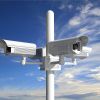 +27 +1
+27 +1Australia uses facial recognition to check in on COVID quarantine
Australia's two most populous states are trialling facial recognition software that lets police check people are home during COVID-19 quarantine, expanding trials that have sparked controversy to the vast majority of the country's population. Little-known tech firm Genvis said on a website for its software that New South Wales (NSW) and Victoria, home to Sydney, Melbourne and more than half of Australia's 25 million population, were trialling its facial recognition products. Genvis said the trials were being conducted on a voluntary basis.
-
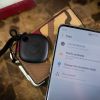 +28 +1
+28 +1Personal tracking tech is headed towards a precise — and dangerous — new era
For some people, the rise of Bluetooth and ultra-wideband (UWB) tracking devices and accessories is probably not just welcome, but necessary. It’s easy enough for a phone to become lost or stolen, never mind keys, or wireless earbuds that pop out at the literal drop of a hat. Gear is also getting prohibitively expensive to replace — high-end earbuds can top $250, and the Galaxy Z Fold 3 costs as much as a gaming PC. If you’re prone to misplacing things, tracking tech can save you thousands of dollars.
-
 +22 +1
+22 +1LA police ask people they stop for their Facebook and Twitter account info
The Los Angeles Police Department (LAPD) instructs officers to collect social media account information and email addresses when they interview people they have detained, according to documents obtained by the Brennan Center for Justice at NYU School of Law.
-
 +11 +1
+11 +1‘Panic made us vulnerable’: how 9/11 made the US surveillance state – and the Americans who fought back
It took Edward Snowden and other whistleblowers to reveal the staggering extent of the government’s spying on its own people as institutional checks failed. On the morning of 11 September 2001, an 18-year-old was driving his white Honda Civic on the way to work as a freelance web designer. It was a beautiful day under a sparkling blue sky, and as he sped down Maryland’s Route 32 with the window down and radio blasting, the teenager was sure it was going to be a lucky day.
-
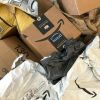 +29 +1
+29 +1How one simple rule change could curb online retailers' snooping on you
There is no major online marketplace operating in Australia that sets a commendable standard for respecting consumers’ data privacy. Letting customers opt out of data tracking would be a good start.
-
 +11 +1
+11 +1Australia is becoming a surveillance state
The government’s approach to technological surveillance is leading us down a dark path, experts warn, as it prepares to give law enforcement agencies new hacking powers. Currently before parliament’s Intelligence and Security Committee, the Surveillance Legislation Amendment (Identify and Disrupt) Bill 2020 is the government’s latest attempt to gain a watchful eye over cyber space.
-
 +10 +1
+10 +1Uber's Call Center Company Uses AI Cameras to Surveil Employee Homes
A call center company that works with big tech companies, goes a step further to install AI-powered cameras to monitor employees in their homes, bedrooms.
-
 +16 +1
+16 +1The Cryptocurrency Surveillance Provision Buried in the Infrastructure Bill is a Disaster for Digital Privacy
The forthcoming Senate draft of Biden's infrastructure bill—a 2,000+ page bill designed to update the United States’ roads, highways, and digital infrastructure—contains a poorly crafted provision that could create new surveillance requirements for many within the blockchain ecosystem. This could include developers and others who do not control digital assets on behalf of users.
-
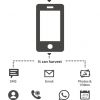 +10 +1
+10 +1Pegasus scandal: Are we all becoming unknowing spies?
We may be stepping into a world in which we are all spies - and at the same time are all spied on.
-
 +13 +1
+13 +1Gunshot-Detecting Tech Is Summoning Armed Police to Black Neighborhoods
A Motherboard investigation found that ShotSpotter frequently generates false alerts—and it's deployed almost exclusively in non-white neighborhoods.
-
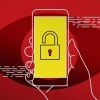 +12 +1
+12 +1Huge data leak shatters lie that the innocent need not fear surveillance
Our investigation shows how repressive regimes can buy and use the kind of spying tools Edward Snowden warned us about. Billions of people are inseparable from their phones. Their devices are within reach – and earshot – for almost every daily experience, from the most mundane to the most intimate.
-
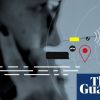 +3 +1
+3 +1What is Pegasus spyware and how does it hack phones?
It is the name for perhaps the most powerful piece of spyware ever developed – certainly by a private company. Once it has wormed its way on to your phone, without you noticing, it can turn it into a 24-hour surveillance device. It can copy messages you send or receive, harvest your photos and record your calls. It might secretly film you through your phone’s camera, or activate the microphone to record your conversations. It can potentially pinpoint where you are, where you’ve been, and who you’ve met.
-
 +14 +1
+14 +1Big tech could control our minds within 10 years, top neurologists warn
BIG tech companies could end up meddling with our minds and manipulating our decisions and views within ten years, leading brain scientists have warned. A group of top American neuroscientists are …
-
 +12 +1
+12 +1The Movement to Protect Your Mind From Brain-Computer Technologies
Recording memories, reading thoughts, and manipulating what another person sees through a device in their brain may seem like science fiction plots about a distant and troubled future. But a team of multi-disciplinary researchers say the first steps to inventing these technologies have already arrived. Through a concept called “neuro rights,” they want to put in place safeguards for our most precious biological possessions: our mind.
-
 +18 +1
+18 +1Amazon's Ring to require police requests for user videos to be public
Amazon’s Ring will soon begin requiring police departments’ requests for user videos or information collected by the company’s smart doorbells and cameras to be made publicly. In a blog post Thursday, Ring said starting next week public safety agencies will only be able to submit requests for video clips through its community safety app, called Neighbors, via public posts accessible on the app’s main feed. Previously, agencies could privately message users to request videos.
-
 +19 +1
+19 +1US Federal Regulation On Face Recognition As Early As Next Week?
Just over a week after Amazon extended its ban on sales of facial recognition technology to US law enforcement indefinitely, there is a sense that federal law may soon be passed in this regard. Forty advocacy groups had written to Jeff Bezos and Andy Jassy (AWS head and soon to be Amazon CEO) earlier this month, demanding a permanent ban on the US Police using the company's facial recognition software, ‘Rekognition'.
Submit a link
Start a discussion




















